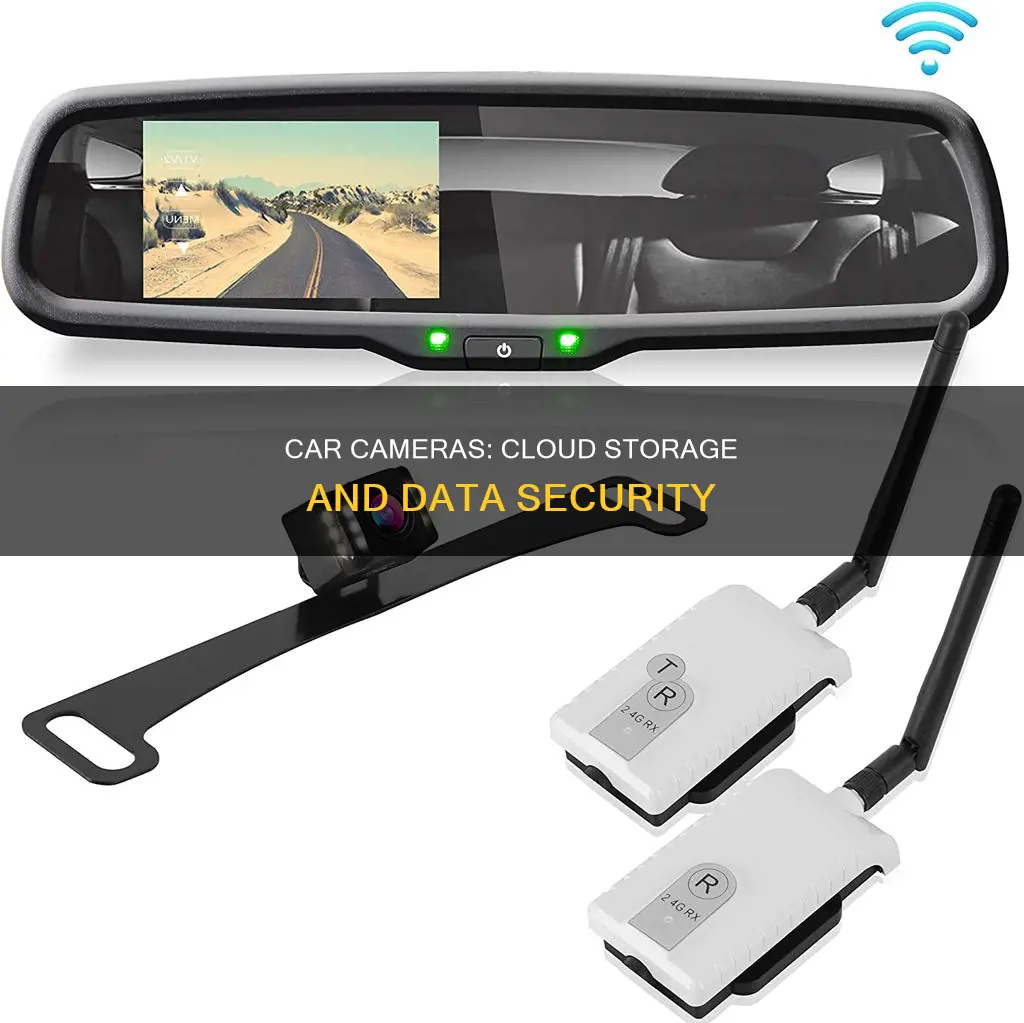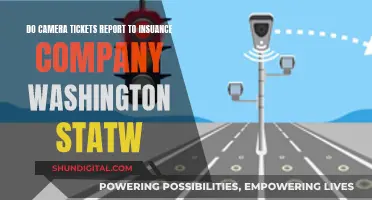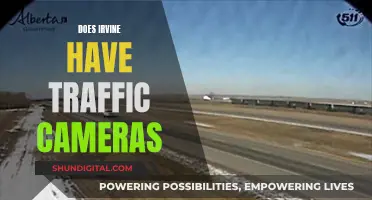
Cloud storage is an increasingly popular feature in car cameras, offering a new level of convenience and security. This technology allows users to store, access, and share footage from anywhere, at any time. With cloud storage, users can remotely access their footage, ensuring quick retrieval and easy sharing with relevant parties. This is especially beneficial if the car camera or its memory card is damaged or stolen, as the footage will remain accessible in the cloud. Additionally, cloud storage provides increased storage capacity, offering significantly more space for footage compared to standard memory cards.
While car cameras with cloud storage offer numerous advantages, there are also potential drawbacks. For instance, cloud storage usually requires a Wi-Fi connection, which may necessitate a separate mobile router or a hotspot from a smartphone. Furthermore, cloud storage may incur subscription fees, depending on the camera model and cloud service provider. Despite these considerations, car cameras with cloud storage can provide remote accessibility, automatic backup, and enhanced storage capacity, making them a desirable option for many drivers.
| Characteristics | Values |
|---|---|
| Cloud storage | Footage is uploaded and stored on remote servers, rather than internal or removable storage devices |
| How it works | When the dash cam records footage, it can automatically send this data to a cloud server where it is stored and can be accessed at any time |
| Benefits | Footage is secure and accessible anywhere, anytime; useful if dash cam or memory card is damaged or stolen |
| Downsides | Requires a Wi-Fi connection and may incur subscription fees |
| Top cloud-capable dash cams | Nexar Pro Dash Cam, BlackVue DR750X-2CH Plus, Thinkware U1000, Garmin Mini 2, Garmin 67W |
What You'll Learn

Live video streaming
Streaming dash cameras can connect to WiFi or a cellular network to upload footage directly to the internet. This can include sharing to social media platforms like YouTube, Facebook, Twitter, and Instagram, as well as off-site cloud storage networks. This means you can share footage by pulling over, accessing your footage via a smartphone and WiFi connection, and uploading.
Some dash cams, such as the Pruveeo F5, use a smartphone connection to stream footage in real-time using a WiFi connection. This model also has a stealthy design, a 140-degree viewing angle, and records at 1280 x 720 resolution at 30 fps. The Goluk T2 FHD Dash Cam is another example of a dash cam with streaming capabilities, as well as simple mounting, rotatable structure, and 64GB of storage.
The TYPE S 360° Smart HD Dash Camera is another example of a dash cam with live streaming capabilities. It can stream directly to YouTube or Facebook Live when connected to WiFi, and the TYPE S Drive app allows users to control and watch recorded videos from their phone.
For those wanting a more comprehensive system, FleetCam® offers a vehicle camera system with live streaming views from up to 5 cameras at once. This system is designed to improve fleet safety and driver behaviour with real-time, in-cab alerts to notify drivers of dangerous or unwanted behaviours. It also has a driver coaching system, where drivers can self-coach and managers can get involved if necessary.
Another option for fleets is the Lonestar Tracking live streaming dash camera, which provides a view of both the outside and inside of the vehicle. It offers full HD video with a 140° adjustable wide-angle lens, future-proof connectivity with 4G LTE and built-in WiFi, and driver assistance and coaching with audio feedback and visual warnings for dangerous driving events.
When choosing a dash cam with live streaming capabilities, it is important to consider the technical requirements, such as the need for a permanent internet connection in the car, as well as the potential costs of data plans and cloud accounts.
Privacy Concerns: Stickers on Webcam for Safety Reasons
You may want to see also

Cloud storage
Several dash cam manufacturers currently offer cloud infrastructure, including the American company Garmin and the Korean brands BlackVue and Thinkware. Nexar and Nextbase also promote their cameras as cloud-capable, but this refers only to cloud storage and does not support live streaming video.
When choosing a dash cam with cloud storage, it is important to consider factors such as the amount of storage provided, the cost of additional storage, video quality, and the security measures in place to protect your data. Additionally, as dash cams with cloud storage rely on an internet connection, it is worth considering how the dash cam connects to the internet and any potential data costs.
- Nexar Pro Dash Cam: Offers dual-channel recording and unlimited cloud storage. Automatically backs up important events to the cloud when connected to the Nexar smartphone app. Records in full HD and includes features like GPS tracking, collision detection, and parking mode.
- BlackVue DR750X-2CH Plus: A high-quality dash cam with cloud storage capabilities through BlackVue's Over-the-Cloud service. Features include two-channel recording, GPS, Wi-Fi, and an option for LTE connectivity. Cloud features include remote live view, real-time tracking, and backup of important videos. A subscription is required for some cloud features.
- Thinkware U1000: Offers cloud functionality through the Thinkware Cloud service. Records in 4K UHD and includes advanced features like radar-based parking surveillance, collision detection, and safety camera alerts. The cloud service allows for the backup of incident footage, vehicle location tracking, and notifications in the event of a collision. A Wi-Fi connection is needed for cloud features.
- Garmin Mini 2: A small and stealthy dash cam that connects to the cloud through the free Garmin Drive app. It offers voice control, a simple parking mode, and overheat protection.
- BlackVue DR970X-2CH Plus: Released in early 2024, this model records 4K to the front and 1080p to the rear. It supports time-lapse and buffered parking modes, and offers advanced cloud features such as two-way voice calls and fleet management.
IR Camera Imaging: Focus for Better Picture Quality
You may want to see also

Remote accessibility
The primary benefit of a car camera with cloud storage is remote accessibility. This feature allows you to access your footage from anywhere, at any time, as long as you have an internet connection. This is especially useful if you need to quickly retrieve footage or share it with law enforcement or your insurance company.
With cloud storage, you no longer have to worry about losing important data if your memory card fails or your car camera is damaged or stolen. Your footage is automatically backed up to the cloud, ensuring that it remains secure and accessible.
Some car cameras with cloud storage offer live video streaming capabilities. This means that you can connect to your car camera remotely and watch live video from your car on your smartphone or other devices. This feature can be particularly useful if you want to check on your vehicle's whereabouts or receive alerts when the camera detects an impact.
To set up cloud connectivity for your car camera, you will need a permanent internet connection in your car. This can be achieved through a portable Wi-Fi hotspot or a built-in LTE connection. Additionally, you will need a power supply for the car camera, such as a hard-wiring kit or a battery pack, to ensure it can record while the engine is off.
It's worth noting that cloud storage for car cameras may come with subscription fees, depending on the model and cloud service provider. There might also be limitations on the amount of data you can upload or live-stream per month, unless you opt for a paid plan with higher storage capacity.
While remote accessibility offers unparalleled convenience and security, it's important to consider data privacy concerns. All data uploaded to the internet can potentially be at risk of hacking or data breaches. Therefore, it's crucial to weigh the benefits of remote accessibility against potential privacy risks before deciding to invest in a car camera with cloud storage.
Focusing Analog Surveillance Cameras: A Step-by-Step Guide
You may want to see also

Increased storage capacity
Cloud storage can provide a significant increase in storage capacity for dash cam footage compared to standard memory cards. This is especially beneficial for high-resolution or 24/7 dash cams that generate large amounts of data.
The amount of storage provided by cloud services varies, with some offering unlimited cloud storage and others providing a set amount of storage space. For example, the Nexar Pro Dash Cam offers unlimited cloud storage, while a free BlackVue account provides 5GB of cloud storage.
The increased storage capacity offered by cloud services means that users don't have to worry about running out of memory or overwriting existing footage. This is particularly useful for those who need to store large amounts of footage, such as those who drive for long hours or in high-risk areas.
Additionally, cloud storage can provide more space for high-resolution footage. Dash cams that record in 1080p, 2K, or 4K resolution require more storage space, and cloud storage can accommodate these larger file sizes.
When choosing a dash cam with cloud storage, it is important to consider the amount of storage provided, the cost of additional storage, and how long videos are stored. It is also worth noting that cloud storage may come with subscription fees, depending on the dash cam model and cloud service provider.
In summary, cloud storage offers a significant increase in storage capacity for dash cam footage, providing users with the convenience of storing large amounts of high-resolution footage without the worry of running out of space.
Dayton, OH: Are Camera Tickets Still Issued?
You may want to see also

Cloud account features
BlackVue
BlackVue offers a range of cloud features, including live streaming, event notifications, two-way voice communication, live GPS, and live event auto-upload. Their free cloud account supports up to 10 minutes of live streaming per day for a single camera, with 5GB of cloud storage. Paid accounts, starting at $4/month, offer unlimited live streaming, GPS tracking, geo-fencing, and fleet management for up to 999 dash cams.
Thinkware
Thinkware's cloud account stands out for being completely free, with no paid version. It offers 300 minutes of live streaming video per month, averaging 10 minutes per day. There is no limit to the number of dash cams that can be connected to the free account. Additional features include event notifications, live GPS, 520MB of cloud storage, and geo-fencing.
Garmin
Garmin's cloud account, called "Garmin Vault", provides unlimited live streaming, event notifications, and cloud storage with the free version. However, the free storage is limited to 24 hours. Paid subscriptions are available for $5/month or $10/month, offering 7 days and 30 days of video storage, respectively.
Nexar
Nexar's cloud service provides unlimited free cloud storage for dash cam footage, making it convenient to access your videos without worrying about transferring them. However, the Nexar app has been reported to have some connectivity issues.
Nextbase
Nextbase offers a free cloud account with unlimited storage during the first 30 days and the option to share files, but it does not support remote video streaming.
When choosing a dash cam with cloud storage, it is important to consider the specific features offered by each brand's cloud account, as well as their limitations and costs.
Focus Camera's Legitimacy: A Spy's Perspective
You may want to see also
Frequently asked questions
Yes, several car cameras offer cloud storage and automatic uploads. Some popular options include the Nexar Pro Dash Cam, BlackVue DR750X-2CH Plus, Thinkware U1000, and Garmin Mini 2. These cameras provide features like dual-channel recording, GPS tracking, collision detection, and unlimited cloud storage.
Car cameras with cloud storage offer several advantages. Firstly, they provide remote accessibility, allowing you to access and share footage from anywhere at any time via an internet connection. Secondly, they offer increased storage capacity, providing more space for high-resolution or continuous footage compared to standard memory cards. Additionally, cloud storage ensures that your footage is automatically backed up, reducing the risk of losing data if your memory card fails or your dash cam is damaged or stolen.
To set up a car camera to upload footage to the cloud, you will need a permanent internet connection in your car. This can be achieved through a built-in Wi-Fi connection in the dash cam, connecting to a hotspot from your smartphone, or using a separate mobile router or portable Wi-Fi hotspot. Additionally, you may need to create an account with the cloud service provider and ensure your camera settings are configured for automatic uploads.







